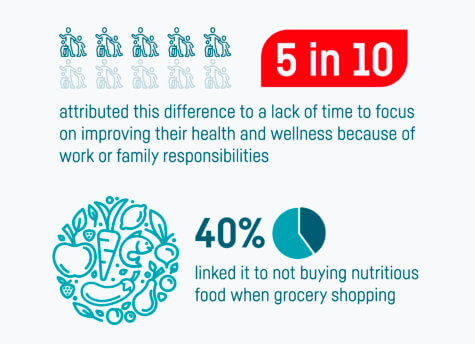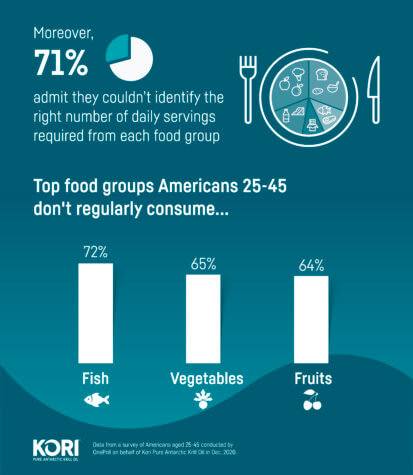NEW YORK — Do the aches and pains of the daily grind make you feel years older than you really are? A new survey finds you’re not alone. In fact, 64 percent of Americans between 25 and 45 say they feel physically older than their actual age.
The OnePoll study finds four in 10 say that they also have aches and pains that they have no idea where they came from. The average American has seven different aches they can’t explain. Mentally, however, 73 percent feel younger than they really are.
Sixty-three percent of respondents admit they feel much older than they expected to at their current age. Nine out of ten Americans report being concerned about their heart health. Immune health (87%) and eye health (87%) are also major health concerns respondents have.
What’s making us feel old?
Over half the poll (55%) say this perceived premature aging strengthens their belief in the adage that “youth is wasted on the young.”

One in three respondents add that parenting has aged them and another 33 percent blame the uncomfortable state of their work station ergonomics rather than the stress of their actual jobs.
The survey, commissioned by Omega-3 supplement Kori Pure Antarctic Krill Oil, finds a link between struggling with age and nutrition. For 36 percent of Americans, one of the hardest parts of being an adult is working up the energy to cook up a balanced meal every night.
“Our perception of aging can be influenced by many cultural factors, but it ultimately has little to do with our overall state of health. It’s important to listen to your body, especially when it comes to nutrition,” says Integrative Medicine Physician Dr. Taz Bhatia in a statement.
Four in 10 agree that the top struggle of growing up is being responsible for their physical health, including making their own doctor’s appointments. The same proportion of respondents also admit to not buying nutritious food when grocery shopping.
Growing up and poor nutrition
More than half of respondents say they still struggle to consume the right amounts of nutrients. Another 71 percent couldn’t identify the right number of daily servings required from each food group.

One in four (26%) rarely or never consume fruits and nearly a quarter say the same about veggies. Moreover, nearly a third of respondents (31%) between 25 and 45 report that they rarely or never consume fish. That’s a far cry from the United States Department of Agriculture recommendation of eating two servings per week.
“The survey data reveals that nutrition gaps are more than common among adults in this age group, but that’s not necessarily a surprise. For example, it’s understandable that busy adults don’t necessarily have time to cook the recommended servings of fish per week, even though it is an excellent source of Omega-3s that support heart and immune health,” Dr. Bhatia adds.
“If you can’t add more of these foods to your diet, one of the best ways to mitigate these nutrient gaps is with high quality supplements,” she added. “Look at how the supplements are sourced, the quality and quantity of the ingredients and any third-party testing.”
Sixty-three percent of respondents note that as they’ve gotten older, the number of vitamins and supplements they take has increased too. However, two-thirds still feel like they should be taking more than they currently do.
